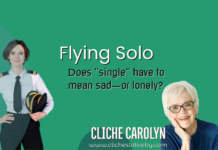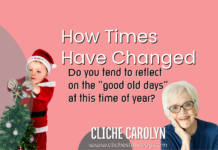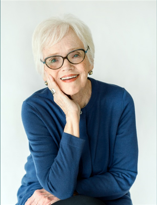Dr. Carolyn Lee reflects on a different cliché each week. Recently, in her blog,“Nothing to Fear but Fear Itself,” she discusses the plethora of phobias that exist. This week Carolyn explores the cliché, all in the same boat.
Learn more about Dr. Carolyn Lee on her biography page or investigate 29 more clichés in her latest book, Keep Your Eye on the Ball And other Clichès to Live by.
All in the Same Boat
When Thomas Hudson translated Du Bartas’ Histoire of Judith in 1584, he created a metaphor that eventually became “all in the same boat.” He wrote, “Haue ye paine? So likewise, paine haue we: For in one bote we both imbarked be.” The often-repeated cliché no longer refers to the literal risks shared by all of those present in a small craft at sea. Now it suggests that we share the same experience or circumstances (usually difficult or unpleasant) as others.
When a professor surprises a class with a pop quiz, and none of the students has had an opportunity to study for it, they might console each other with, “well, we’re all in the same boat.” When an elevator gets stuck between the 17th and 18th floors, or when a lightning strike knocks out the electrical grid of a whole small town, the victims might find it comforting to think of themselves as in the same boat together.
In April of 2021, Damien Barr, a British writer and broadcaster, tweeted a poem in which he expressed the idea that this old maxim didn’t hold up in the midst of the COVID calamity. He wrote, “We are not all in the same boat. We are all in the same storm. Some are on super yachts. Some have just the one oar.”
His comments went viral, garnering more than 2,000 retweets around the world. It was picked up by Peggy Noonan for her column in The Wall Street Journal and cited on Oprah’s SuperSoul podcast. Several posters were inspired by Barr’s “same storm, but not the same boat” COVID poem. They all feature stormy seas on which there are a number of very different boats: a military transport, a cruise ship, a small sailboat, a dinghy, a schooner, a yacht, a canoe. Some of them look fit for the perils of the sea, and some of them don’t. Some look like they will make it; others maybe not.
During these past two years, I have been painfully aware that my experience of the pandemic has been vastly different from those of the people I have seen on the evening news and some others I know personally. I was prevented from making a trip to the Galapagos Islands and seeing a couple of Broadway shows—disappointing but not devastating. We had to do without in-person family gatherings, but there were texts and emails and zooms and face-time encounters. My grocery shopping was temporarily put on hold, but after a few months, I could slap on a mask and resume my trips to Kroger’s and Costco. I could no longer go to movie theaters, but there was always Netflix and Amazon and HBO. Although two members of my family tested positive for the virus, neither of them got sick, and now all adult members of my family have received their vaccines and boosters.
But every day, every single day, I’ve thought about the people for whom the pandemic was a disaster—people who lost their jobs, couldn’t pay their rent, didn’t know where their next meal was coming from. I’ve thought of my young friend who is one of those “long-haulers” and has put up with Covid symptoms for more than a year. I’ve thought about those who have lost loved ones to whom they were not allowed to say goodbye, and I’ve thought about those they lost, who died painful and lonely deaths. I’ve thought about the ER doctors and nurses and technicians, the essential workers, all the people who put their lives at risk every day, who witnessed—and experienced—unimaginable suffering and accumulated memories that will haunt them forever. No, I realize that I have been a passenger in an entirely different boat, one that floated along peacefully while other people’s boats foundered and were shipwrecked.
The kind of boat we are in and with whom we share it is not something over which we have complete control. Good fortune puts some of us in seaworthy vessels. Others are not so lucky. The common storm must be navigated, whether a person is in a rubber raft, or a 45-foot yacht. The challenge is to be accepting, understanding and non-judgmental of the people whose boats—and lives—are very different from our own.
Want to Read More?
Check out Dr. Carolyn Lee’s blogs on her website, she features a new cliché each week or you can order her new book, Keep Your Eye on the Ball And Other Clichès to Live By. Want to know more about the woman behind the words? Read more about Carolyn here. We hope you enjoyed this article learning more about the cliché, all in the same boat.













LUVVIT!